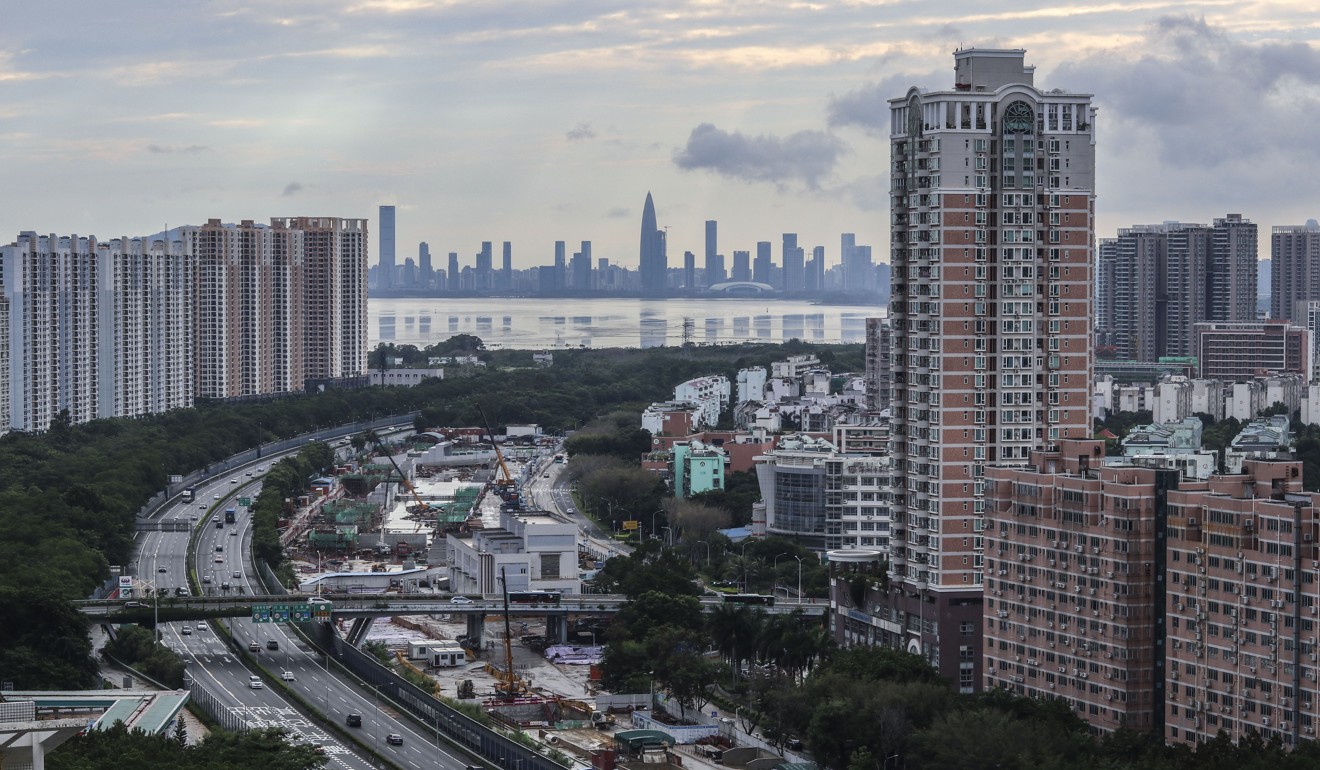
Make movies in China’s Greater Bay Area to revive flagging Hong Kong industry, filmmakers told
Think tank Our Hong Kong Foundation urges moviemakers to look north to bigger and better-equipped studios to restore glory days
Hong Kong moviemakers should use the large and modern studios on the mainland but carry out post-production locally to produce high-quality films and revive a flagging industry, a think tank led by a former leader of the city has proposed.
Our Hong Kong Foundation on Monday put forward eight suggestions to get the most out of industry professionals and ensure the sector continues to contribute to economic growth.
The organisation, led by former chief executive Tung Chee-hwa, released a report that said revenue from Hong Kong films had fallen from a peak of HK$1.24 billion (US$158 million) in 1994 to HK$249 million last year.
In the same period, the number of movies made per year also plunged from 234 to 53.
“At present, the film industry accounts for less than 0.1 per cent of Hong Kong’s gross domestic product,” it said.

While the city does not lack talent, especially in action choreography, the foundation pointed to a host of challenges faced by filmmakers, particularly the young. A lack of studio space, complicated applications for subsidies and zero funding for internet films were among the obstacles.
Kenny Shui Chi-wai, a senior researcher for the foundation, said Hong Kong’s film industry should try using studio facilities in the “Greater Bay Area” – a plan by Beijing to integrate Hong Kong, Macau and nine Guangdong cities into an innovation hub rivalling Silicon Valley.
Second Hong Kong film on mainland China’s ‘709’ human rights crackdown shows lives of families seeking asylum in US
The think tank also said four of the 10 all-time top grossing films in mainland China had been co-produced by moviemakers in Hong Kong, including this year’s Operation Red Sea, in second place with a box office revenue of 3.6 billion yuan (HK$4.13 billion).
To qualify as a co-production, the foundation said at least a third of a film’s leading cast must be mainland actors or actresses, and the plot had to be related to the mainland.

These films are also subjected to a vetting process before and after shooting.
But Shui said the Hong Kong government should fight for a relaxation of the requirements placed on co-productions.
Looser restrictions were introduced this year for joint productions between Taiwan and the mainland, Shui said.
Ranking every Hong Kong film released in 2017, from worst to best
Movie star Jackie Chan revealed at Beijing parliamentary meetings in March that he planned to form an association to fight for more opportunities on the mainland for artists from Hong Kong.
Shui believed local film professionals could provide consultancy services to companies looking to bring foreign films to the mainland market as they had a good understanding of the mainland’s vetting process and taboos.
“For example, there is a concept on the mainland that says the villains should never win,” Shui said.
The ending to the hit Hong Kong film Infernal Affairs was therefore altered before it was shown in mainland cinemas.

The researcher also recommended the city’s government increase subsidies and quotas for projects supported by the Film Development Fund, to better support low to medium-budget films made in Hong Kong.
According to official figures, the government has put HK$540 million into the development fund since 2007.
Federation of Hong Kong Filmmakers executive committee chairman Tenky Tin Kai-man said any revival of the industry would require the government putting its money where its mouth was.
“[The government] says it supports the film industry, but there are many restrictions,” Tin said.
The veteran actor highlighted a court case in May in which two prop men were convicted of possession of counterfeit cash over fake banknotes used in filmmaking.
Hong Kong film industry’s fake money fears eased as monetary authority pledges to streamline application process on prop use
“The government doesn’t want us to shoot movies here. If they really want to welcome it, there should be relevant policies,” Tin said.
On joint productions, Tin acknowledged there were restrictions on scripting, but said filmmakers had to follow the rules if they wanted to show a movie on the mainland.

